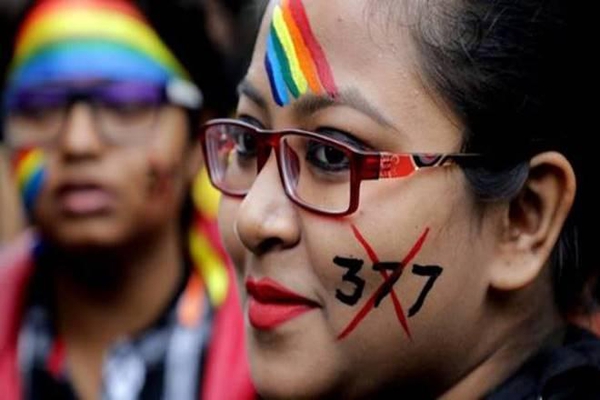It is a controversial and regressive piece of legislation that is still a part of Indian statute books – Section 377 of the Indian Penal Code criminalizes homosexuality. If we as a forward-looking nation, have any pretensions to modernity, this is, unfortunately, an ignominious reality that points to a hidebound, illiberal and conservative mindset. As the contentious Article 377 comes up for reconsideration before the Indian Supreme Court, we revisit the history of the section governing gay sex in India.
Section 377 is a part of Chapter XVI of the Indian Penal Code of 1861. It was introduced by the British based on the Buggery Act of 1533. The section governs so-called ‘unnatural offences’ and acts ‘against the order of nature’ which includes homosexual acts. The nature of the law is Victorian - both in terms of its time of framing as well as the prudish, puritanical mindset of those times.
Over the years, the issue of homosexuality has entered public discourse and people have come out in the open about their alternative sexual preferences. What also came to light is that Section 377 is also used to harass and intimidate consenting adults.
The section reads: “Whoever voluntarily has carnal intercourse against the order of nature with any man, woman or animal, shall be punished with imprisonment for life, or with imprisonment of either description for a term which may extend to ten years, and shall also be liable to fine.” Civil society has long demanded that what consenting adults do in the privacy of their bedrooms is no business of the government or law enforcement authorities. As such any voluntary sexual activity between consenting adults ought to be decriminalized.
In 2001, activist group Naz Foundation filed public interest litigation before the Delhi High Court, asking for legislation of homosexual intercourse between consenting adults. The matter was dismissed; though, an appeal was preferred in the matter. Chief Justice Ajit Prakash Shah and Justice S. Muralidhar gave a landmark judgement in 2009; which effectively decriminalized homosexuality and brought Indian law in line with most other progressive, inclusive societies.
Various appeals were filed in the SC against the Delhi Court judgement. The Supreme Court overturned the judgement based on the constitutional finding with regard to the High Court's power to make or amend existing laws. However, the SC order clarified that the order was limited to the constitutionality of the High Court order and that “the competent legislation shall be free to consider the desirability or propriety of deleting section 377 from the statute book or amending it”.
Religious leaders from the Vishwa Hindu Parishad, the Jamait Ulama, Cathedral Church of the Redemption and other religious organisations have opposed the striking down of section 377. Many members of the ruling BJP and Samajwadi Party have also opposed the decriminalization of homosexuality saying gay sex is against nature and ‘against Indian culture’. Baba Ramdev also claims to be able to ‘cure homosexuality’.
The LGBTQ community is strongly in favour of striking down section 377 and decriminalizing homosexuality; those with alternative sexual leanings who have long been persecuted and ostracized. A private member bill by Shashi Tharoor also sought to strike down the law via the legislative route. However, the bill received little support; emanating as it did from the opposition.

LGBTQ demonstration
Since the matter was up before the SC the last time, many more countries have decriminalized homosexuality; additionally, many have now started to recognise same-sex marriages as well. Much has changed in the world since 2013. Hopefully, that will have some bearing on how the SC rules when the matter once again comes up before the top court. The Chief Justice has shown his inclination – “A section of people or individuals who exercise their choice should never live in a state of fear," he reportedly said. This offers significant hope to the country’s LGBTQ community and to everyone with a fair-minded, progressive mindset.
Do you have something interesting you would like to share? Write to us at [email protected]